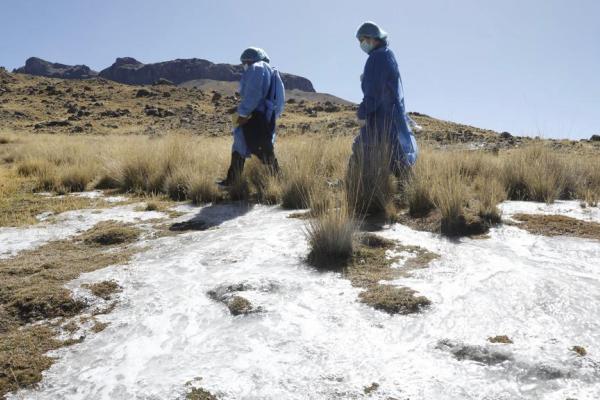What can the COVID-19 pandemic, forest fires in Peru, and the outbreak of a new variant of simian pox (now referred to as mpox) have in common? In each of these phenomena there is a profound interrelationship between human, animal and environmental health, three key concepts in “One Health”, an approach promoted by the World Health Organization (WHO) that Partners In Health (SES) already integrates into its interventions.
One Health, as it is known in English, is an integrative perspective that recognizes the connection between the three types of health mentioned above. It promotes interdisciplinary and multisectoral collaboration to address global challenges such as zoonotic diseases, antimicrobial resistance and climate change, offering sustainable solutions that protect the well-being of both people and ecosystems.
“It’s an approach that has been recommended for some years now. In essence, it tells us thatwe cannot view the health of people separately from the health of animals and the environment. It has already happened to us, for example, with some zoonoses. The COVID-19 pandemic was a case in point. We must have a look at health that integrates different areas if we want to act,” says Daniela Puma, head of the Partners In Health Program Management Directorate.

El enfoque One Health (“Una sola salud”, en español) aborda la salud humana, animal y ambiental para proteger el bienestar de las personas y los ecosistemas.
Foto de Julio López
Thus, according to Leonid Lecca, general director of Socios En Salud and instructor at Harvard University’s Department of Global Health and Social Medicine, “SES is a health institution interested in this approach to be able to better help the most vulnerable people.”
“The environment in which people are developing is changing due to human activities and also as a result of climate change. This undoubtedly influences the presence of new diseases and the reemergence of other diseases,” he says.
Currently, WHO is already integrating “One Health” in all its units and offices. It also offers strategic policy advice and provides training at local, national and regional levels, with the aim of strengthening country-led and country-managed programs.
“One Health,” a preventive approach to health and environmental crises
According to a WHO publication, the World Bank estimated in 2022 that the “One Health” approach could generate an annual benefit of at least $37 billion for the global community, while the costs required for prevention would represent less than 10% of these benefits.
Since 2003, the world has witnessed more than 15 million deaths and economic losses exceeding $4 trillion due to pandemics and other diseases. In addition, threats to food and water security, directly related to the “One Health” approach, have led to severe economic and social consequences.
“One Health” not only focuses on the prevention and control of zoonotic diseases, but also encompasses key challenges such as antimicrobial resistance and the effects of climate change on health. On both fronts, Partners In Health has implemented active interventions through its programs, demonstrating the positive impact of addressing health from a broader perspective.

Socios En Salud ya viene adoptando en sus intervenciones el enfoque «Una sola salud», promovido por la OMS.
Foto de Julio López
“These three pillars of human, animal and environmental health allow actors such as government, academia and health institutions to work together to improve access to health care and benefit more people,” says Daniela Puma.
The essence of WHO’s approach lies in interdisciplinary collaboration between medicine, veterinary medicine, environmental biology and public policy, seeking comprehensive and sustainable solutions. By understanding that human health is interconnected with animal and environmental well-being, “One Health” offers a comprehensive and preventive strategy to address health crises, thus ensuring a more resilient and effective approach for human communities and the ecosystems that surround them.



